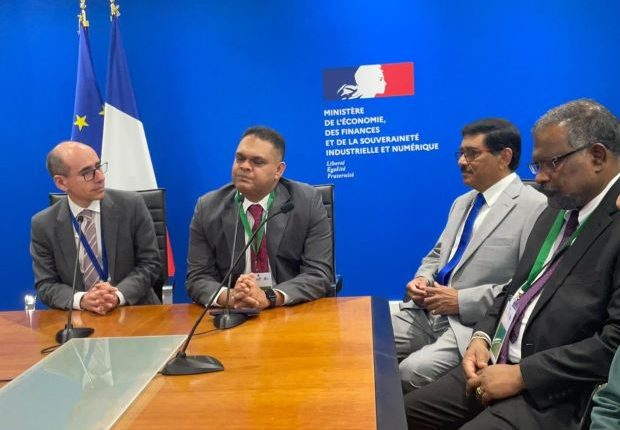Sri Lanka’s deal on debt restructuring with bilateral creditors
By Shihar Aneez
COLOMBO – Sri Lanka reached a deal with its bilateral creditors last week leading to supporters of President Ranil Wickremesinghe’s government celebrating the milestone with firecrackers.
Bilateral loans account for US$ 10 billion of the total US$ 37 billion foreign loans, government data show.
Sri Lanka is set to start the second round of negotiation with its commercial creditors and sovereign bondholders, government officials have said.
Here are some questions and answers about what Sri Lanka’s deal on bilateral debt restructuring means:
Question: Is Sri Lanka out of bankruptcy now?
Answer: Sri Lanka’s debt restructuring process has three components: domestic, bilateral, and commercial. Out of these three, the Wickremesinghe government has reached deals only with domestic and bilateral creditors. The government has said the country will be out of bankruptcy when it concludes all the debt restructuring including the deal with commercial creditors and sovereign bond holders. Out of the US$ 14 commercial debts, Sri Lanka owes US$ 12.5 billion to sovereign bondholders.
Q: What does Sri Lanka reaching the deal on debt restructuring with bilateral creditors mean?
A: Sri Lanka will now have a five-year grace period (from 2022) from bilateral creditors for the repayment of loans.
The grace period has given a fiscal space of US$ 5 billion which should otherwise be paid to bilateral lenders. Sri Lanka can use this space to plan strategically to prevent the repeat of another sovereign debt default, unlike most bankruptcy-declared nations. The money, which would otherwise have been used for bilateral debt repayment, can now be used for some public financing that would enhance the country’s ability to ensure more government and export revenue.
The deal also has reduced the country’s interest payment, which is the largest component in the annual budget. This means the pressure on the debt servicing will be somewhat reduced.
Soon after Sri Lanka declared bankruptcy on April 12, 2022, all the projects funded by the country’s bilateral lenders were suspended. After last week’s deal, Sri Lanka can now reach its bilateral lenders to resume all the infrastructure projects that have been suspended in the last two years and also implement some new projects, government officials said, noting such a move would boost the country’s construction industry, which once contributed a significant share to the economy.
Q: Can Sri Lanka relax some of the tight fiscal policies like tax reduction?
A: No. The bilateral debt restructuring deal will not give space for the government to reduce taxes or implement some populist policies to woo more votes in the upcoming election. The bottom line is Sri Lanka cannot deviate from the agreement with the International Monetary Fund (IMF). State Finance Minister Shehan Semasinghe said the country has a long way to go before considering a reduction of taxes.
Q: Will the people at the grassroots see any benefits from last week’s deal?
A: Yes, but gradually. When the suspended bilateral infrastructure projects start, the construction sector is likely to see a boom and completed infrastructure projects will have trickle-down effects on the public. However, it will be slow and gradual, economists say.
Q: Why does the government consider the bilateral debt restructuring deal as a huge success?
A: Successive Sri Lankan governments in the past have been swinging between pro-Chinese and pro-Indian foreign policies. Those moves have angered both of those emerging world powers plus the United States. Sri Lanka’s plan to come out of bankruptcy would have been threatened if one of its bilateral creditors disagreed on the debt restructuring. Sri Lanka has now secured the debt restructuring with China, India, the US and all other countries. The West and India originally resisted the move to treat China separately in the debt restructuring talks. However, Sri Lanka was able to bring all the creditors to the same treatment through the “net present value” concept on their future repayment. Despite all the differences in the past, Sri Lanka’s ability to deal with all these countries and get them to agree on debt restructuring is an achievement, experts say.
-economynext.com



Comments are closed, but trackbacks and pingbacks are open.